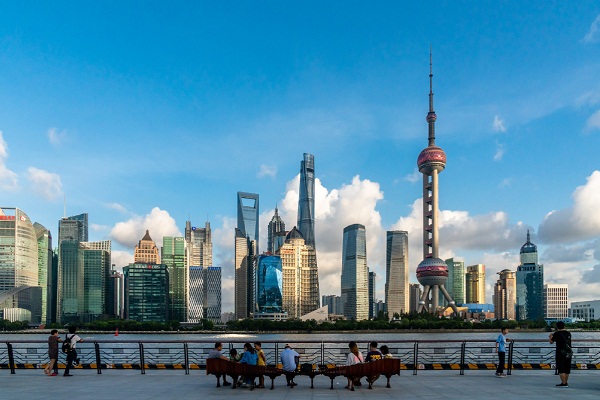China's ship sails steadily toward its destination

"China can only do well when the world is doing well. When China does well, the world will get even better," President Xi Jinping said in his keynote speech at the Third Belt and Road Forum for International Cooperation in 2023.
The 75th anniversary of the founding of the People's Republic of China conjures the image of a gigantic ship with 1.4 billion passengers sailing in stormy weather at times and calm waters at others, with the captain steadfastly keeping the compass needle in the direction of the destination.
The destination, in this case, is the rejuvenation of the Chinese nation by 2049, the 100th anniversary of the founding of the People's Republic. While the ship will continue its journey from there on to new and more fascinating destinations, its journey till now is already a remarkable achievement with no precedent in history. It is fascinating for me as someone living in a small country like Sweden with less than 11 million people to think how a country as large as China with a massive population could move steadily in one direction.
The outcome of the third plenary session of the 20th Central Committee of the Communist Party of China showed how the country's leadership has managed, especially since the launch of reform and opening-up in 1978, to maneuver the ship of the State from one destination to another, while overcoming challenges and making remarkable achievements on the way to building a moderately prosperous society in all respects.
Along the way, many internal problems including air, water and soil pollution, and unbalanced urban and rural development have emerged. On the international front, major crises like the global financial crisis, the COVID-19 pandemic, the Russia-Ukraine conflict and the global inflation crisis have been severe headwinds that the ship has had to endure. But it never veered from its course.
Equally amazing is the fact that China has risen to such global prominence economically and politically without waging wars on its neighbours or even those who consider the country a threat and a rival. In contrast, China's rise has contributed to global stability.
In the past centuries, modernization and industrialization in Europe, and the West generally, but even in Japan, although great and beneficial to humankind in many ways, have been associated with colonization, imperialism, destructive wars and the rule of the jungle. China is a great exception, because it has not used any of the dubious means of the West to achieve its unprecedented development.
The world today is in dire need of a peaceful mechanism for not only resolving crises but also to ensure countries coexist peacefully. And China's success in diplomatically bridging the gap between Iran and Saudi Arabia in 2023 is a shining example of such a potential. Its success in bringing 14 different Palestinian factions together on a unified policy and calling for a peaceful resolution to the ongoing tragedy in the Gaza Strip in accordance with international law is another example.
The world benefits from the Chinese philosophy of harmonizing and creating a holistic structure within which a multitude of diverse issues can be resolved. Chinese leaders reiterated recently that the country must pursue an independent and peaceful foreign policy, help build a community with a shared future for mankind, respect human values, and promote the Belt and Road Initiative along with the Global Development Initiative, the Global Security Initiative and the Global Civilization Initiative.
The world, especially the major Western powers, has tried to resolve most of the strategic challenges and threats using security and military means. Not only has method failed to resolve any of the issues but also it made things even worse, leading to the loss of more lives and resources.
The US-led NATO's 20-year occupation of Afghanistan is a stark reminder of the futility of this approach. Neglecting socioeconomic development is a fatal error, which China has been warning against, and leading by example to show that security issues are entangled with economic, social and even cultural development.
Economic cooperation and cultural exchanges, including people-to-people exchanges, must become the beacon guiding countries toward security and peace as they sail in stormy waters. The recently concluded Summit of the China-Africa Forum on Cooperation was a reminder of the effectiveness of Chinese diplomacy through economic cooperation. The FOCAC Summit also showed what is meant by a community with a shared future. Many mistake it for mere rhetoric, but in reality it is a notion of common prosperity and common good.
China is acutely aware that its current and future prosperity depends on the prosperity of other countries, including African countries, but equally importantly on global peace and stability. China has advanced rapidly in recent decades, but to continue moving forward, it needs to be joined by the rest of the world. It was in this sense that President Xi recently invoked an African proverb: If you want to go fast, walk alone, if you want to go far, walk together.
